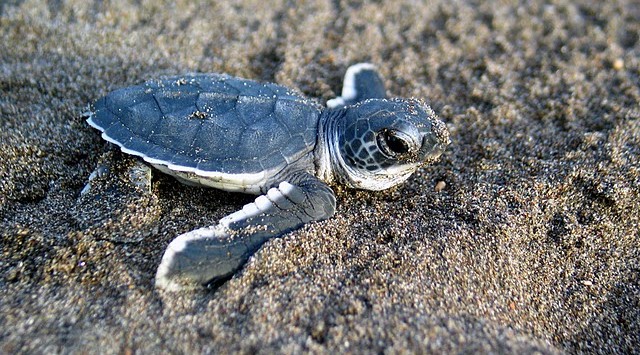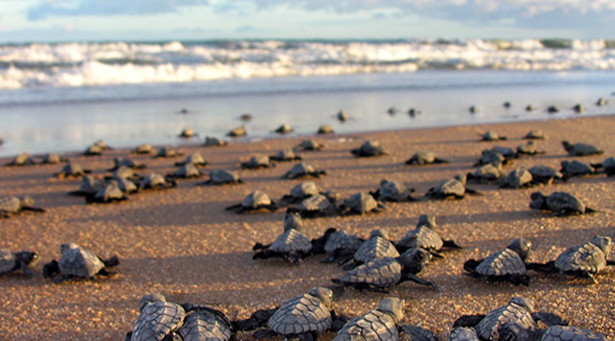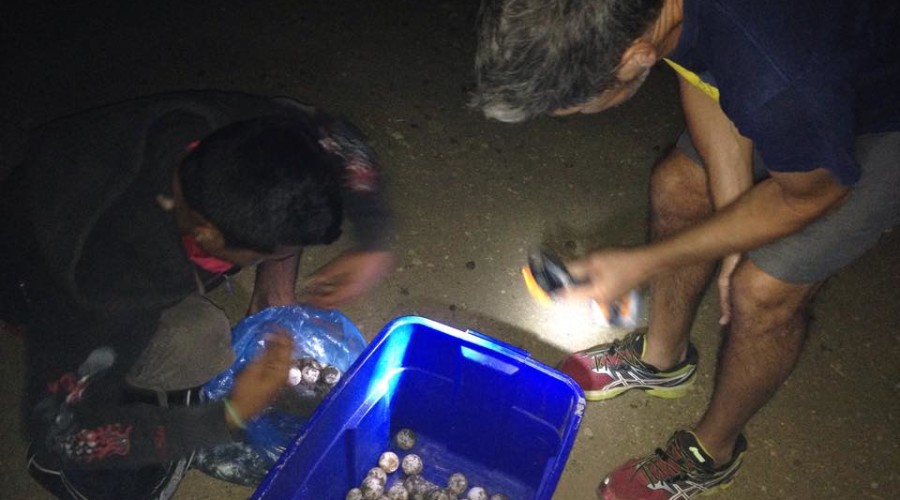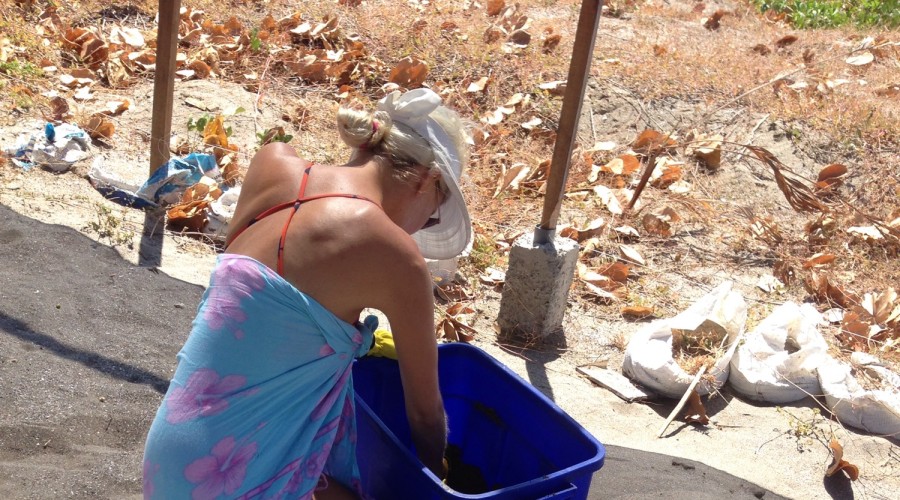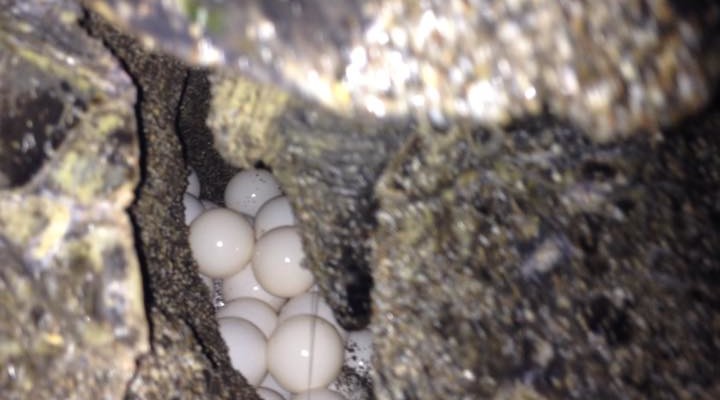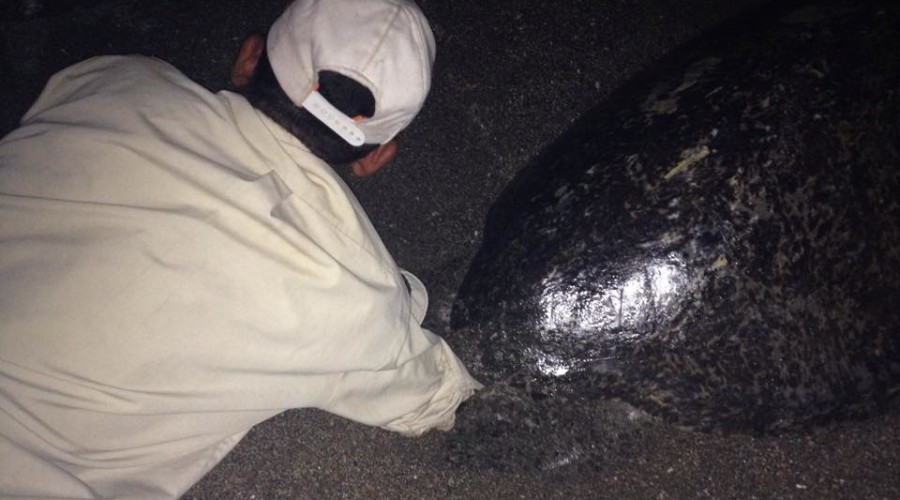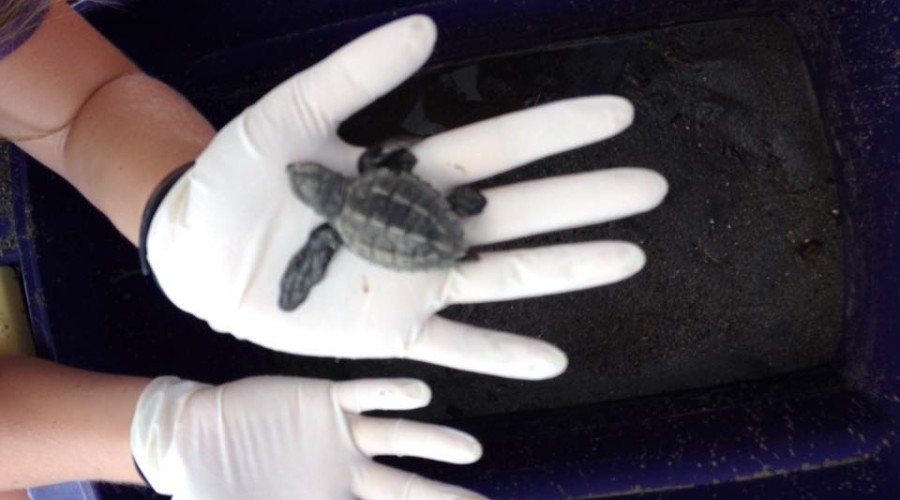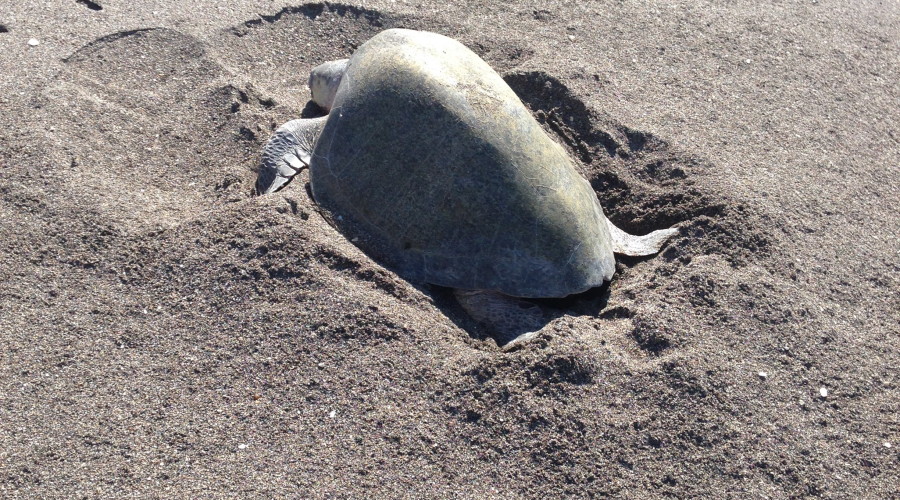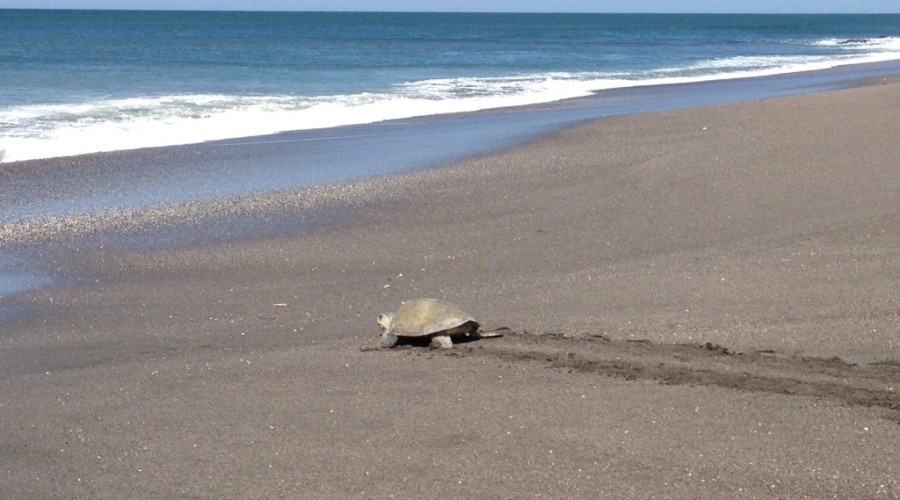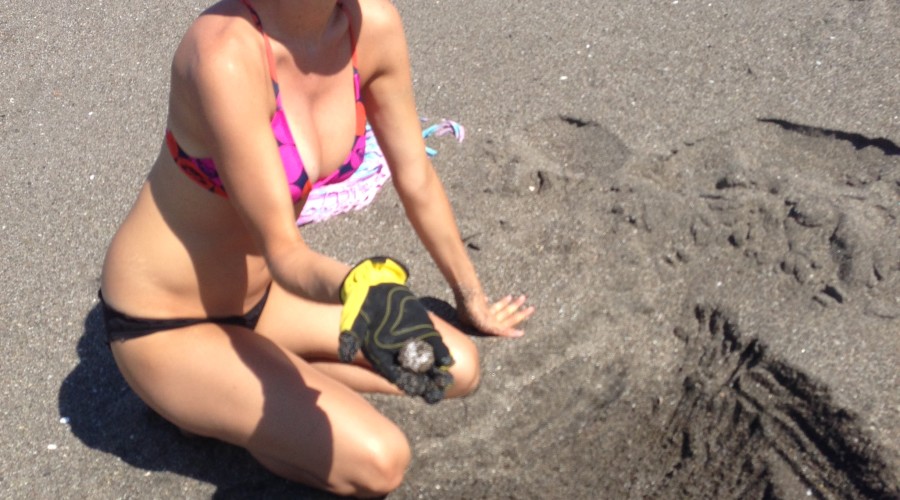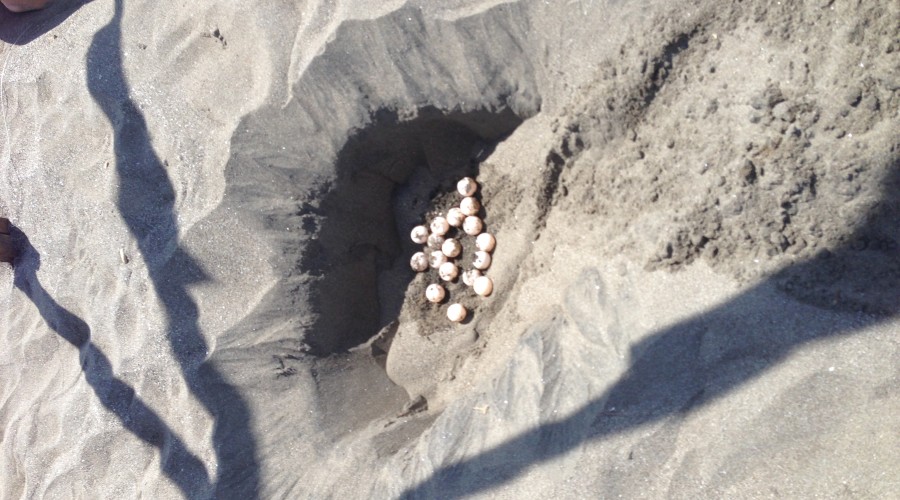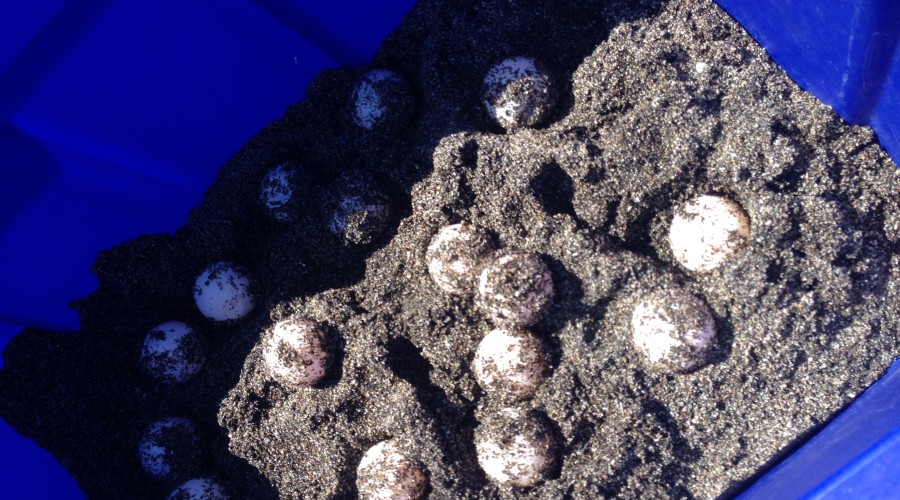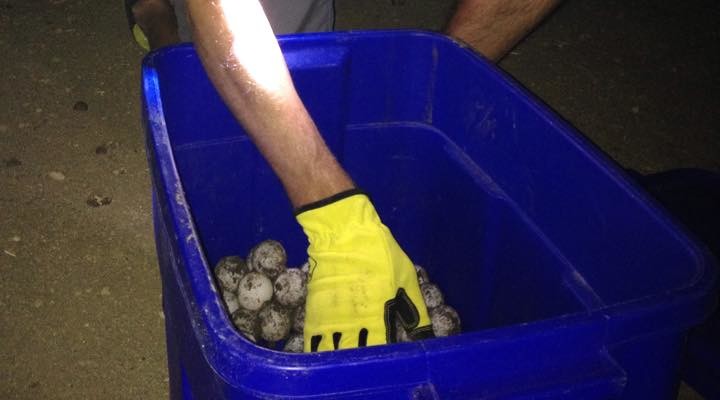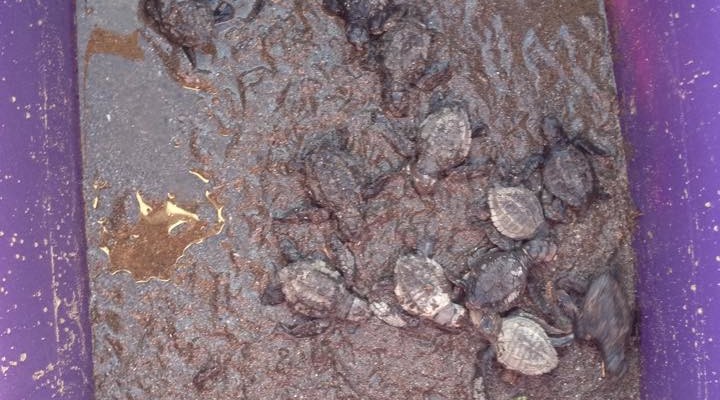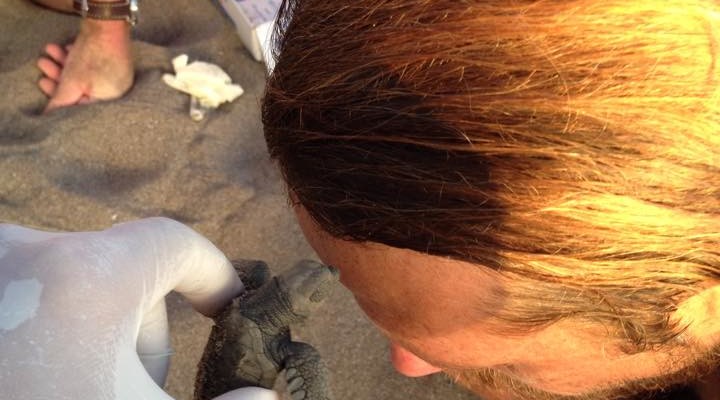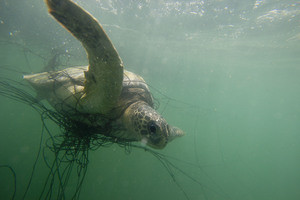Many Nicaraguans have eaten turtle eggs in their lifetime. They are free food for the locals. Local men can be found scanning the beaches every night for mama turtles laying eggs. The turtles don’t stand a chance. It is actually illegal for the locals to collect the eggs, but there is no governing body to reinforce the law.
Sea turtles are an endangered species.
5 out of the 7 species of sea turtles in the world can be found in Nicaragua. The turtle eggs generally take 45 days to hatch after being layed. There is a good chance that you could see the magnificent process of the little turtles hatching and helping them make it safely to sea.
We need volunteers to walk the beaches at night or early morning, depending on the tides, searching for turtles laying their eggs. We call this “turtle patrol”. Sometimes we will find a local already retrieving eggs from a turtle laying her eggs. At this point we will reimburse the local and buy the eggs, giving him much more than he would get from selling them. Its a win-win situation. We then transport the clutch of eggs safely to our turtle sanctuary, where they will hatch about 45 days later.
Other times, we find the turtle laying eggs before a local has discovered it. We will then retrieve the eggs ourselves, careful not to disturb the delicate shells.
We cover about 4 miles of beach. More volunteers means more turtles will survive and hopefully live on to lay eggs of their own one day.
Its an incredible experience. Very rewarding. You will be contributing to the survival of these ancient animals that are listed as “endangered species”. They need your help.
Sea Turtle Threats
Worldwide, six of the seven sea turtle species are classified as threatened or endangered due to human actions and lifestyles.
The biggest threats include:
Entanglement in fishing gear
Poaching and illegal trade of eggs, meat, and shells
Coastal development
Plastic and other marine debris
Ocean pollution
GLOBAL STATUS
The world’s seven sea turtle species are classified as follows according to the IUCN Red List of Threatened Species:
Leatherbacks: Vulnerable
Greens: Endangered
Loggerheads: Endangered
Hawksbills: Critically Endangered
Olive Ridleys: Vulnerable
Kemp’s Ridleys: Critically Endangered
Flatbacks: Data Deficient

